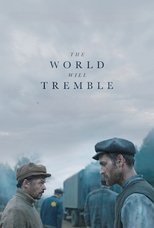Brent Marchant
May 13, 2025
6/10
The unspeakable horrors of the Holocaust never cease to leave audiences aghast and speechless, particularly when it comes to wondering how something like this ever could have been allowed to happen in the supposedly “civilized” world of 20th Century Europe. However, those of us alive today often fail to consider that news didn’t travel quite as fast or as widely in those days as it does currently. So, when it came to news about the Nazi death camps that claimed the lives of six million Jews in cold, calculated fashion, word of the carnage didn’t make its way onto the world stage until after it had been unfolding for some time. And, were it not for courageous whistleblowing efforts of two escaped prisoners from the Germans’ first extermination facility in Chelmo, Poland, it may have taken even longer for the accounts to surface. Writer-director Lior Geller’s fact-based release tells the story of two runaway gravediggers, Solomon Wiener (Oliver Jackson-Cohen) and Michael Podchlebnik (Jeremy Newmark Jones), who fled the camp and made their way to the Jewish ghetto in Grabow, Poland, where they made contact with a rabi (Anton Lesser) who had connections to the Polish resistance movement. Solomon gave a full account of what was happening at Chelmo, the first reported testimony about Nazi atrocities against the Jewish community. This report was subsequently smuggled to London by members of the Jewish Underground, who presented it to the BBC for public broadcast in June 1942. And, at last, the world was aware of the butchery that was transpiring. From this, one would assume that this never-before-told story would make for a compelling film. However, when compared to other offerings about the Holocaust, this release, regrettably, comes up somewhat short. Perhaps the biggest issue here is the disproportionate emphasis that the narrative places on the already-well-known depraved and sadistic practices of the Nazis, events that account for nearly the entire opening half of the picture. As necessary as the depiction of these shocking and infuriating developments may be in setting the stage for what’s to come, the amount of footage devoted to this part of the story tends to belabor the point. In fact, it’s so prevalent that it nearly overshadows the heroic and more compelling account of the prisoners’ harrowing escape, their tearful, gut-wrenching recounting about life and death at the so-called “work camp,” and their exposure of the many lies that the Germans brazenly propounded about the nature of the facility. What’s more, the picture could also use some shoring up in some of its technical areas, such as sound quality, lighting, editing, and a somewhat puzzling and uneven mixture of dialogue in German and English. To the film’s credit, the fine performances of the three principals and its moving, emotive score help to make up for these shortcomings in a picture that gets progressively better the further one gets into it. And, to be sure, “The World Will Tremble” is by no means a bad film, but a number of other previous releases provide more effective accounts and treatments of this atrocity, such as “Sophie’s Choice” (1982), “Schindler’s List” (1993), “Remember” (2016), “The Zone of Interest” (2023) and “Lee” (2024), as well as the TV miniseries "Holocaust" (1978). Stories about this period in history are truly important and deserve commensurate treatment; it’s nevertheless disappointing that this one didn’t quite receive the handling it merits.
